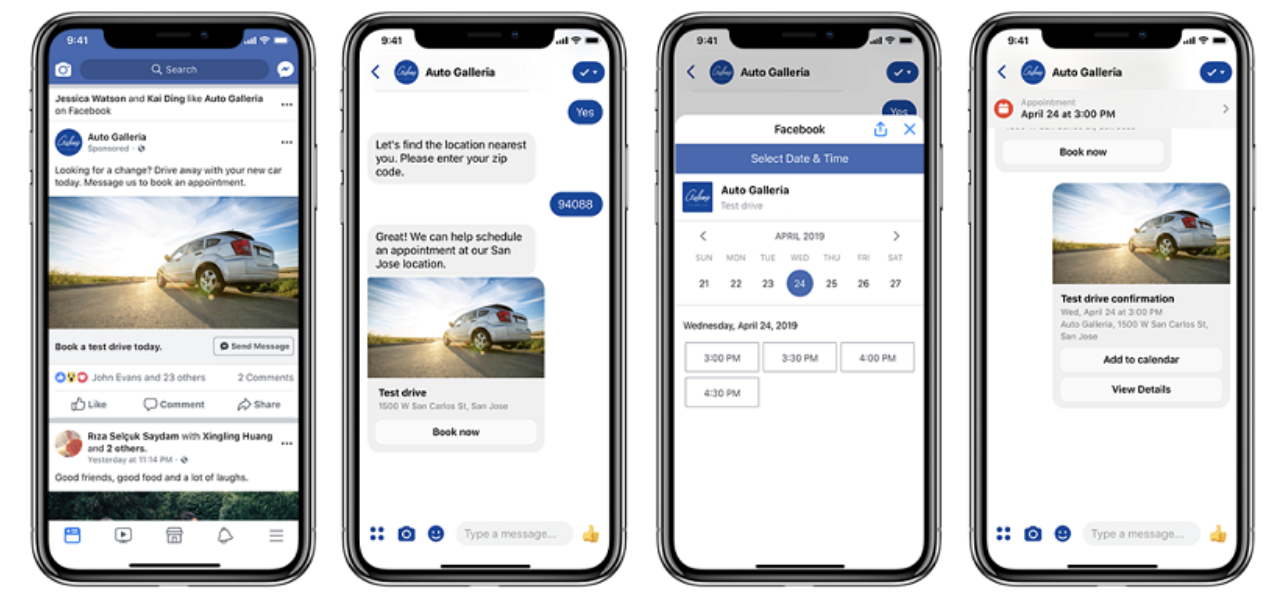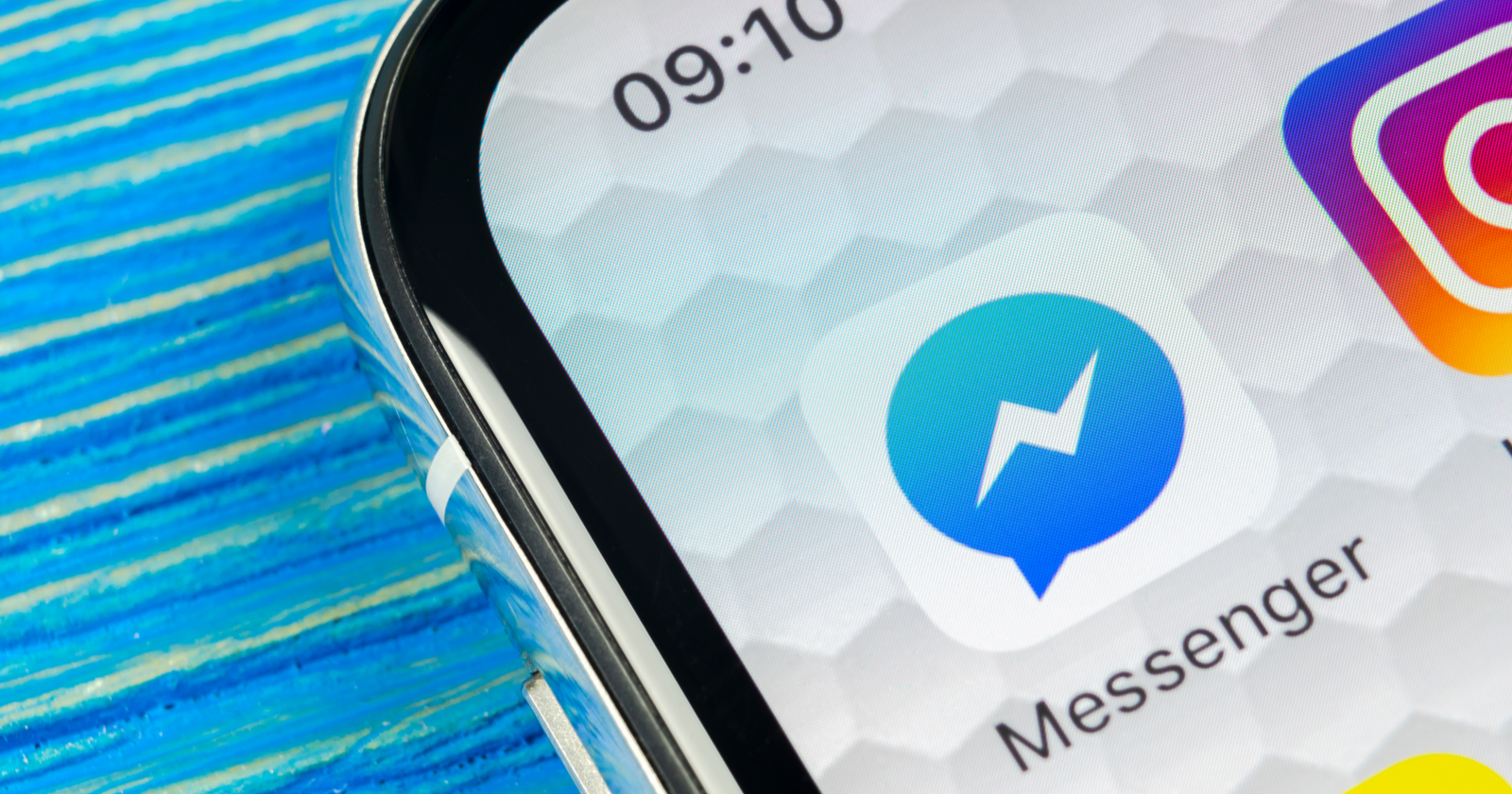At the beginning of May, Facebook held its yearly F8 conference. This conference is where Facebook discusses the overall future of the platform and unveils its upcoming developments and features to developers, entrepreneurs, and other professionals.
This year, Facebook announced a number of improvements to its Messenger service, as well as new, marketing-focused features.
These changes and additions to the messaging platform are important to examine, particularly with regards to how they’ll impact our existing marketing efforts.
Let’s see what’s coming to Facebook Messenger and how we can begin preparing and strategizing for these changes.
1. Messenger Desktop App
This is perhaps the least important update, but still worth mentioning. Facebook is creating a desktop app for Messenger.
The reason I don’t find this change that life-changing for businesses is because you can already use Messenger on a desktop device. Simply log into Facebook and head over to your messages.
However, Facebook did mention that one of the primary functions and goals behind this desktop version of Messenger would be as a collaboration tool.
The desktop Messenger empowers teams to “have video calls, collaborate on projects or multitask while chatting.”
We could begin seeing Messenger used more with teams to share ideas and have weekly meetings.
2. Lighter, Faster, Leaner
Facebook is redesigning its Messenger app to be faster and less strenuous on device storage. They’ve labeled the project “LightSpeed,” and the goal is a Messenger app that launches in under 2 seconds and requires only 30MB to install.
To achieve this, they’ve “rebuilt from the ground up on an entirely new code base,” which means we’ll have a Messenger app that is just more optimized for today’s need for fast loading and immediacy.
While this may not have a direct effect on marketing, we could see more people using Messenger with this lighter, faster app. Not only because the speed will be more aligned with what is expected today, especially in the mobile environment, but also because it is 70MB smaller than the old Messenger.
This makes it easier for people with low storage on their devices to find space to house the app. And gives even more reason for businesses to take a look into Messenger bots and funnels.
3. Close Friends Groups
One future feature that could be troubling to businesses is close friends groups.
It’s unclear what the official name for this feature will be, but the focus is to help Facebook users have a “dedicated space” to connect and share content with their closest friends and family.
Users have been able to designate a close friends list in the past and even see a feed of only content posted by members of this group. The difference with this new feature is privacy.
Facebook wants its users to be able to share content with close friends and without the fear that others will see, or that it could be held against them in the future.
Based on early screenshots, it appears that users can create multiple groups. This is another distinction from the “Close Friends” feature of yesterday, where users had only a single list.
In this sense, these groups feel like a much more enhanced group chat with a heavier focus on content, over plain text communication.
It wasn’t made clear if businesses can be included in these groups, or even create their own. I really hope so, especially the latter, because this has a lot of potential as a powerful marketing channel. It would allow a business to communicate with a direct group of specific customers or audience segment.
Another way I see this being really impactful is for businesses with multiple store locations or branches. Groups could be created for each location to allow these individual branches to communicate and share content directly to their local customers.
While this is doable, with location-specific Facebook pages, it would be a much more seamless experience with this group feature. Plus, we wouldn’t have to battle with the lack of organic posts displaying in News Feeds.
Alternatively, B2B marketers could use these groups as a convenient, dedicated space when communicating with all interested parties at a prospective client’s company.
4. Better Group Video Viewing
Communal video watching is a growing trend. The evidence is in the success of streaming platforms like Twitch, with 15 million daily active users, and YouTube’s thriving community.
People have a desire to watch movies and engage with the content creator and other viewers. Facebook also has its eyes on enhancing their users’ ability to engage with video content together.
We’ve first seen this manifest itself on Facebook through live streaming.
Then, last July, Facebook created Watch Parties. This feature allowed groups to host a Watch Party, where users view and chat about site-hosted videos collectively and in real-time. These parties create much more engagement, as high as 8x the comments than a normal video posted to Facebook.
For Facebook, the logical next step for Watch Party and communal video watching is Messenger. According to Facebook, users will, “be able to seamlessly share a video from the Facebook app on Messenger and invite others to watch together while messaging or on a video chat.”
This will be a really powerful tool, especially combined with the Messenger desktop app. One of the main functions for Messenger on desktop will be group video calls.
The added benefit of being able to collectively watch videos together will be great for internal business decision making, but also marketing.
As of now, you can add six people to a messenger group video chat, but up to an additional 50 people can tune into the chat. While they won’t be able to talk, they’ll be able to absorb the video content with the group and see the conversations taking place.
Essentially, we’ll be able to live stream our desktop or a piece of video content to an intimate audience and share additional insights via chat.
This could be a new type of webinar platform, one consumers would be more comfortable logging into.
5. Messenger Lead Ads Templates & Appointment Booking
I’ve saved the best for last. This update has the most immediate marketing potential for businesses.
Here is Facebook’s breakdown of this development:
“We’re making it even easier for businesses to connect with potential customers by adding lead generation templates to Ads Manager. There, businesses can easily create an ad which drives people to a simple Q&A in Messenger to learn more about their customers. And to make it easier to book an appointment with businesses like car dealerships, stylists, or cleaning services, we’ve created an appointment experience so people can book appointments within a Messenger conversation.”

This means that businesses can easily use Facebook and Messenger to qualify leads through the Q&A, and then convert them via an appointment booking.
The process is largely automated and Facebook has added more templates and responses to help give the illusion of a real customer service agent.
That said, this feature is not actually a chatbot. So, there could be some issues with open-ended responses or longer user inputs. In these cases, the lead can be passed on to a live, human agent.
Also, if a business chooses to invest in a Messenger bot with higher capability, it could open up even more opportunities to take advantage of this feature and to a much greater effect.
The ability to seamlessly move customers from their Facebook feed, to a Messenger chat and book them an appointment really delivers on the omnichannel experience that consumers are increasingly expecting from their favorite brands and businesses.
Facebook is slowly rolling out the appointment booking features to different business types. Stay tuned for your opportunity!
Conclusions on the New Facebook Messenger Features
Facebook is putting a lot of focus on privacy here and enhancing connections between “closest friends” versus the entire cyber web.
On the surface, this may feel troubling to businesses and create a sense that they are going to be left out of the most important activities that Facebook and Messenger users are taking part in.
In reality, these features open up new marketing doors and even present some fresh channels with huge potential impact.
More Resources:
- Facebook is Introducing New Business Tools for Messenger
- Small Business Guide to Chatbots & Facebook Messenger Marketing
- How to Build a Free Facebook Messenger Chatbot for Lead Generation
Image Credits
Screenshot taken by author, June 2019





![AI Overviews: We Reverse-Engineered Them So You Don't Have To [+ What You Need To Do Next]](https://www.searchenginejournal.com/wp-content/uploads/2025/04/sidebar1x-455.png)